Consistently on the top of the list for honeymooners, the Maldives is home to some of the world’s most luxurious resorts and arguably the most perfect beaches as well. If only we could have our own space in one of the islands in the many atolls, while being on a budget… For years, backpackers have been repelled from its unbelievable beaches due to the equally unbelievable prices of its resorts. Fortunately, things have changed and it is now possible to visit the Maldives without breaking the bank.
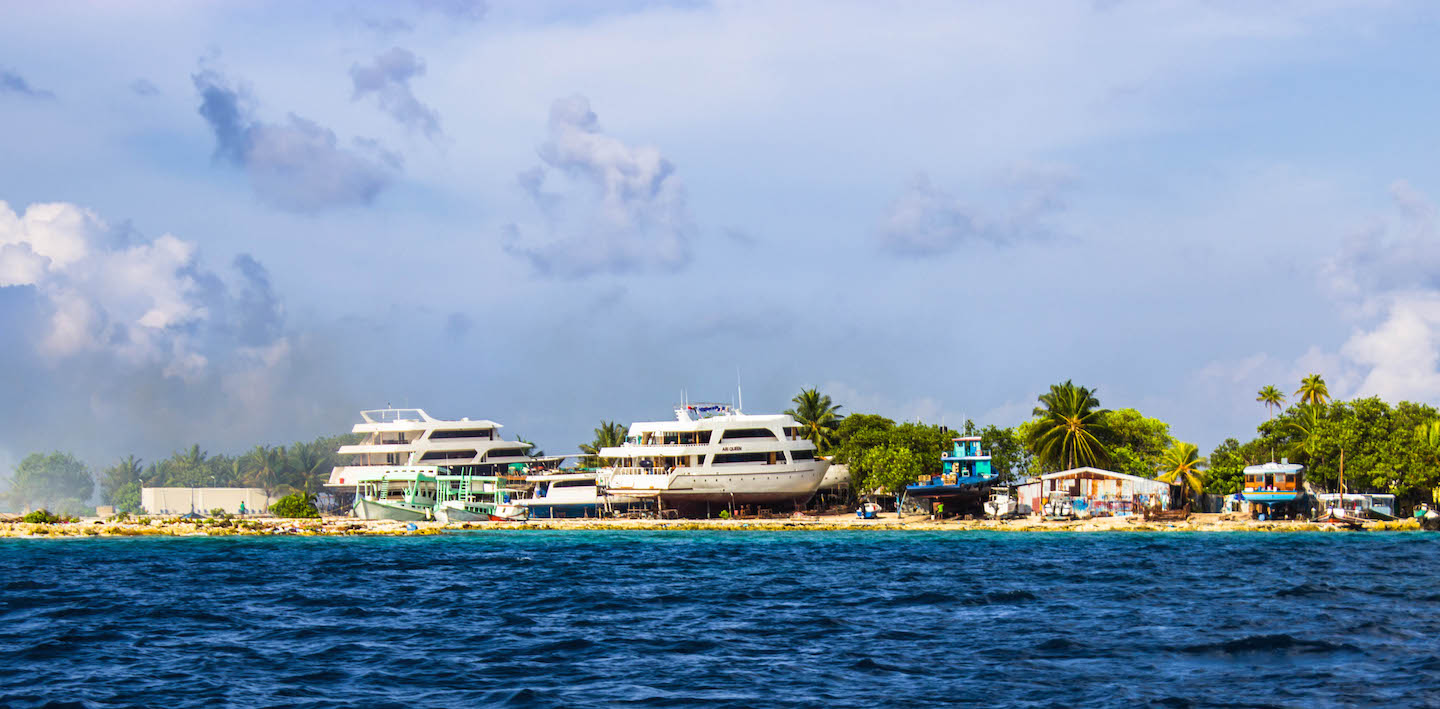
The Maldives consists of over 1190 islands arranged in two vertical lines with a total of 26 atolls. 105 islands are solely occupied by resorts, while 200 are inhabited by locals, and the remainder unoccupied. Since 2009, the Maldivian government allowed its citizens to open private guesthouses and hotels, as well as the use of public transportation for foreigners. It was a simple change in political matters, but huge for the tourism development in the Maldives, making it more accessible to those without deep pockets. The number of available hotels has increased exponentially during the past few years.

For our stay in the tiny Indian Ocean paradise, we chose the local island of Maafushi in the South Malé Atoll (Kaafu Atoll), one of the first to receive investments after the new law came out. Bustling with more accommodation options than any other local island (it has 30 guesthouses), it was a choice that we will never regret!
Getting to Maafushi
Transportation in the Maldives is pretty limited. One must resort to either flying in between islands or taking a ferry. Chartered flights have horrific prices (say USD 500), and speedboats are equally expensive (USD 250-300) for even the shortest, 15-30min away destinations. Public ferries are the only affordable options, though all of them go through the capital of Malé. We partly chose Maafushi because it wasn’t too far away from Malé – public ferries to other further away islands can take days. The public ferry from Malé to Maafushi only cost MVR 22 or USD 1.60 per person.

Maafushi Island Infrastructure
With a population of 2,600 people on the island, Maafushi had a thriving local economy. Nonetheless, the island was still tiny. The longer extension of the island took under 20 minutes to cross, while for the shorter width of the island, we could practically see the other side. What we found particularly funny was the fact that there were motorbikes and even cars driving on the unpaved roads of Maafushi!

While strolling through the island and wandering along local homes, it was interesting to see how fragile and challenging life can be at the mercy of the sea. To start with, houses and buildings on the island were powered by generators or solar panels, which was surprisingly dependable. There were no sources of fresh water on the island so they used desalination plants in order to have access to potable water.

Another issue for locals was waste disposal. The amount of waste generated in our daily lives has never been so significant in my head as it was here in the Maldives. The east side of Maafushi had an open landfill where the island’s waste was disposed and burned. For other big islands like Malé, they move the waste to the “rubbish island,” Thilafushi, where 330 tons of waste is disposed of daily and then burnt.
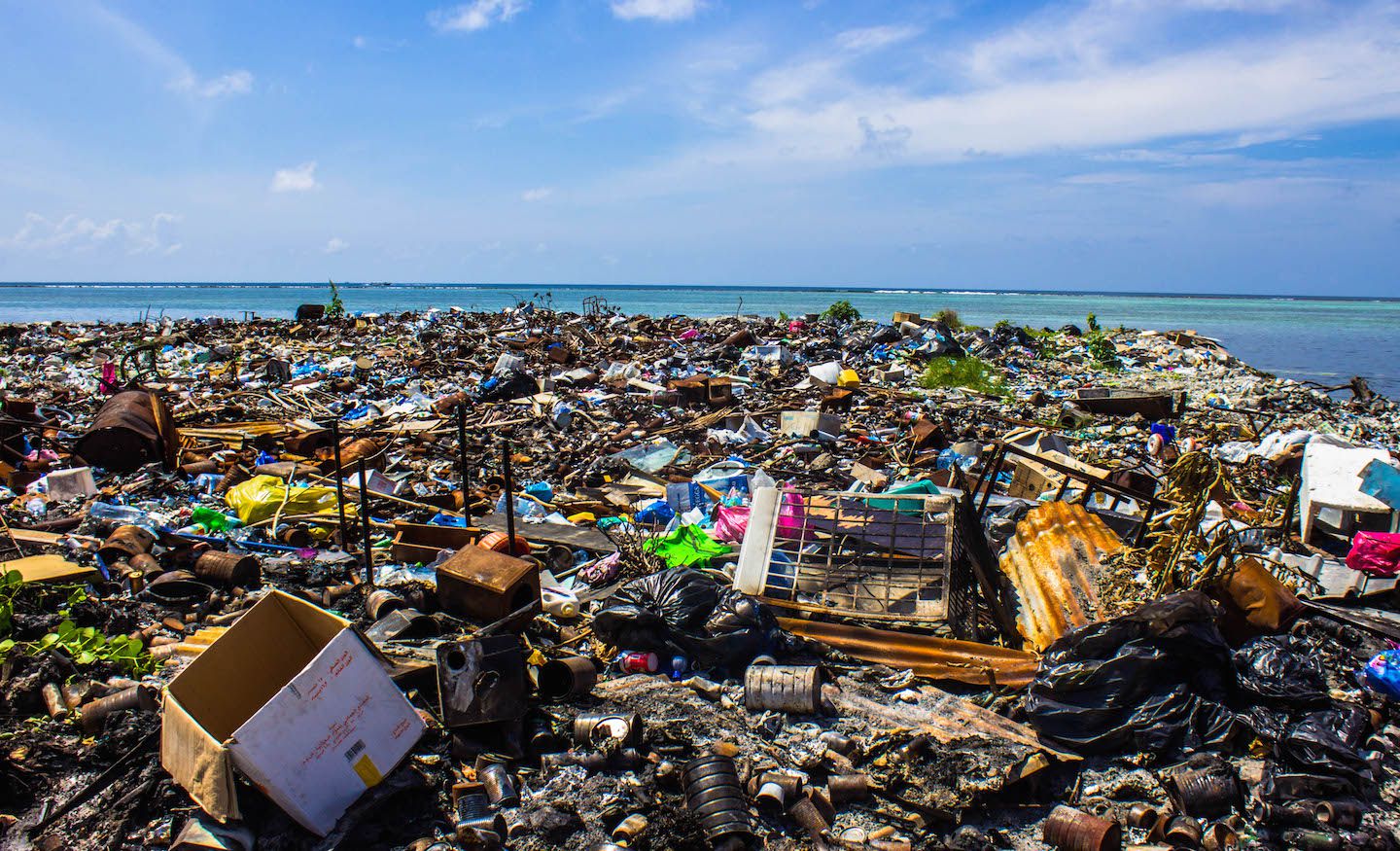
It was heartbreaking to see so much trash in paradise. Unfortunately, waste is a byproduct of human existence and we have yet to figure out better ways of dealing with it, even in modern cities! A school and a telecommunication tower were also present on the island, keeping the population educated and connected to the outside world.
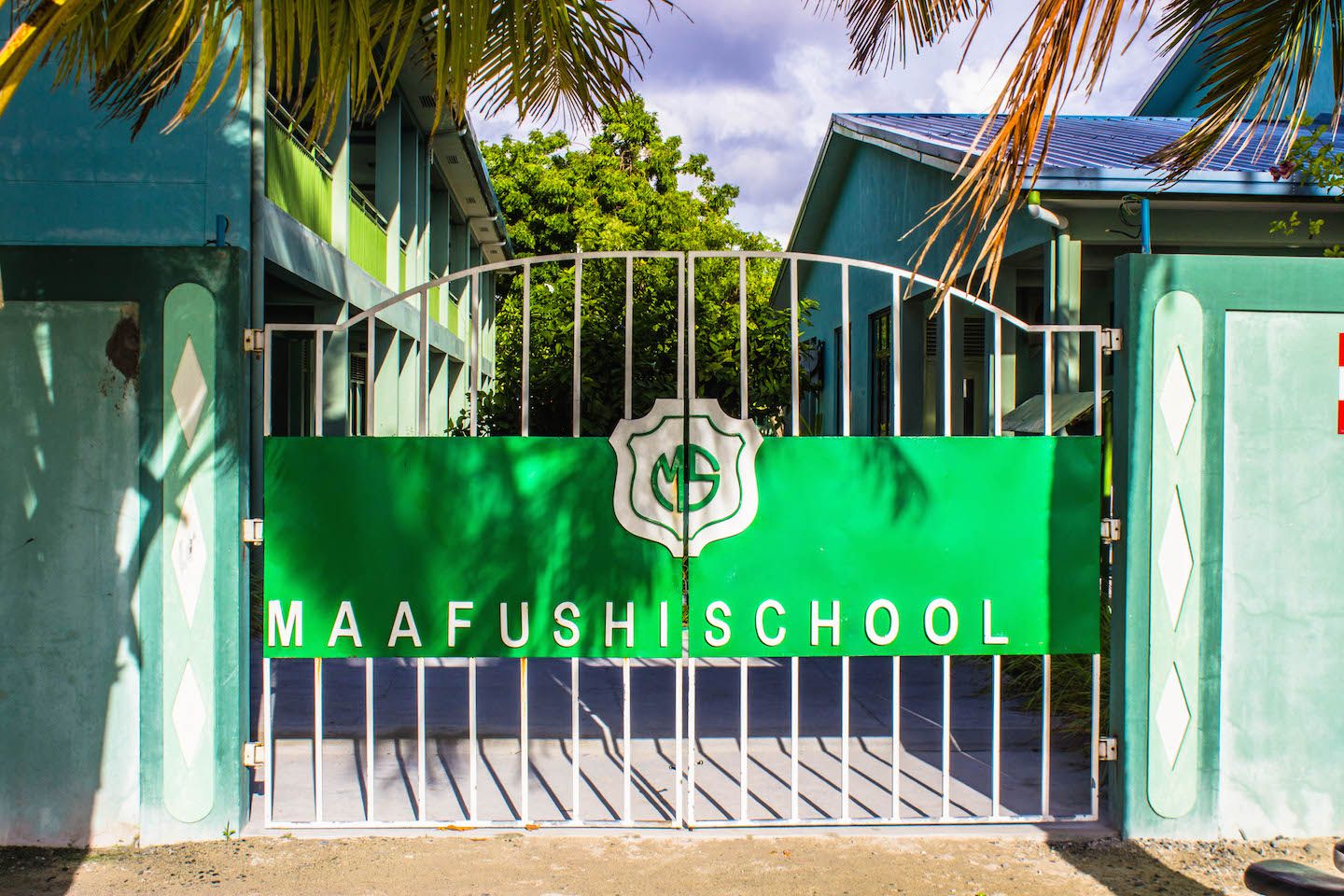
One thing that really shocked me was that there was even a prison on the island! I guess even paradise has bad people that need to be corrected…
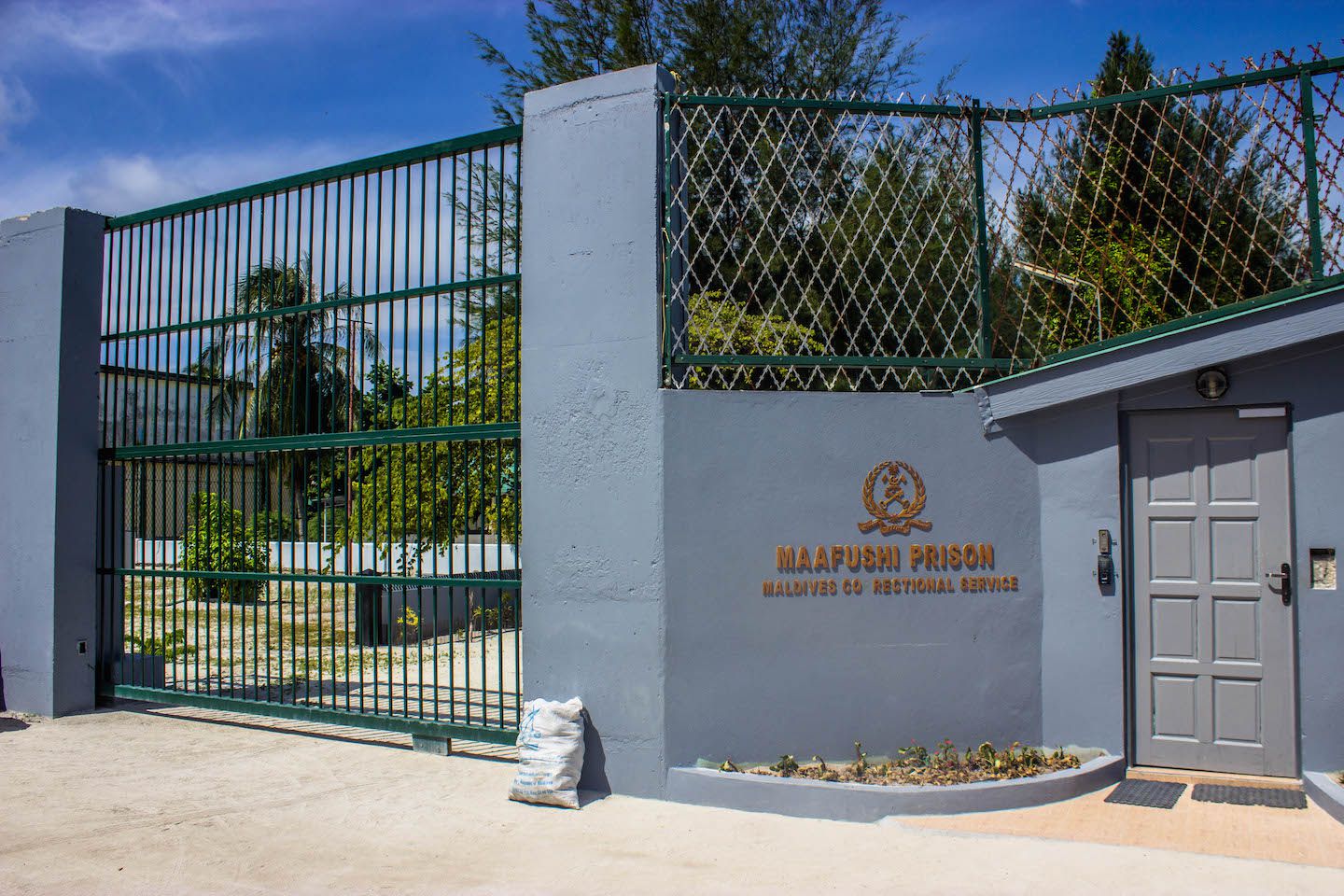
Life in the Maldives
Maldivians were extremely friendly towards us during our stay in their country. Always with a smile on their faces and initiating conversation, they were captivating people and their only complaint to us was that it gets boring to live there. “There is nothing to do here,” we often heard. While for us the island nation was idyllic and heavenly, I can imagine how living here every single day would dull even the prettiest scenery.
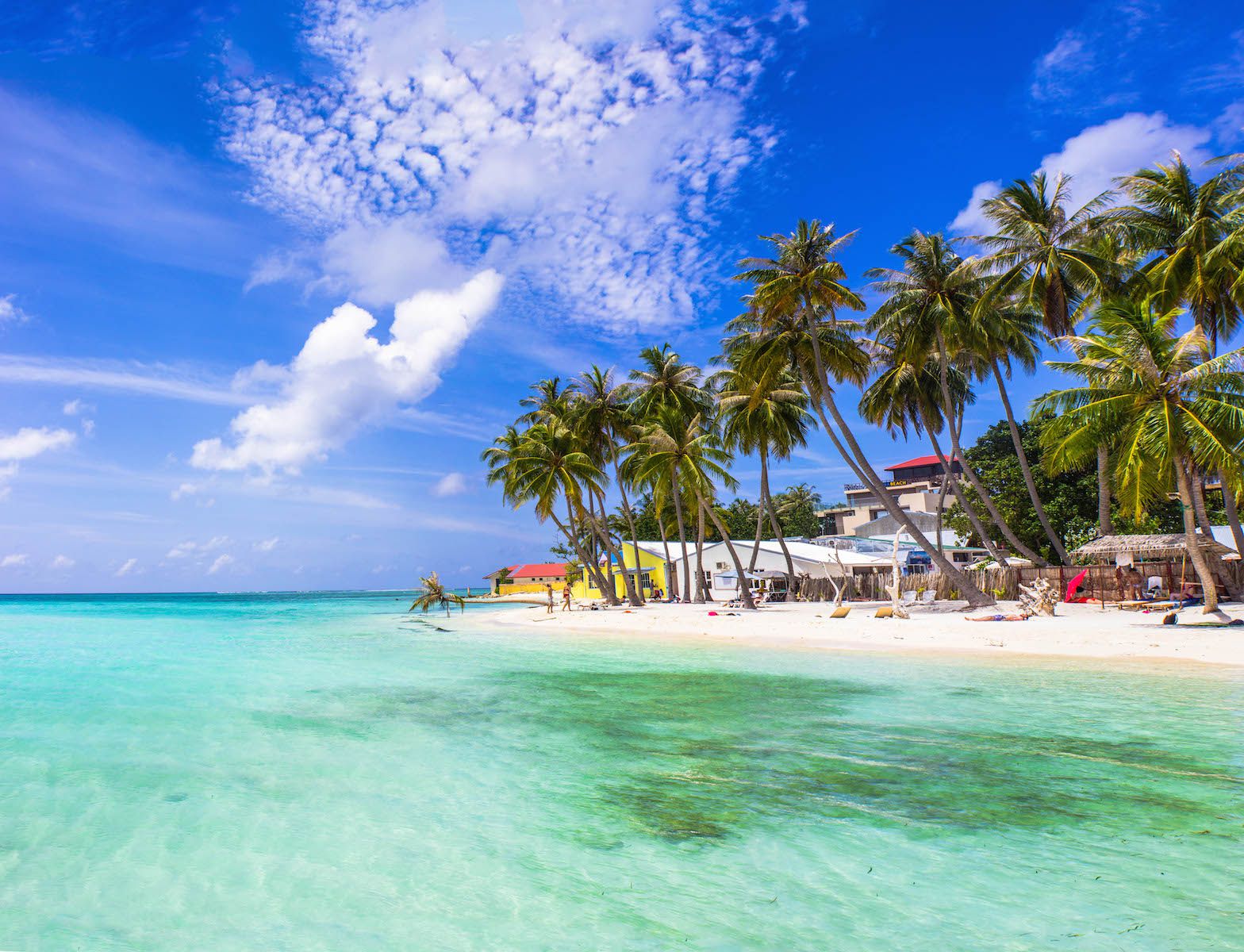
Strictly Muslim, alcohol and pork items were banned from local islands. If Maldivians get caught drinking, the punishment is very severe and they go directly to jail. Those items can be found only on resort or inhabited islands, or a party boat anchored a few meters away from the shore. We were approached many times for a free transfer to the party boat. We did not want to find out just how expensive alcohol here would be.

Another banned item was bikini wear. In public areas, women must wear clothes all the time, ideally covering their thighs and shoulders. Men should also not walk shirtless. The only exception was within the “bikini beach” walls. Some local islands had a fenced beach, exclusive to foreigners, where bikini wear was allowed. In Maafushi, the bikini beach was on the northern tip of the island and it was simply perfect!

Maafushi Bikini Beach
With luminous cyan-blue water, whiter-than-white powder sand and leaning palm trees completing the scenery, it was arguably the most beautiful beach I’ve ever been too. The tropical paradise of Koh Muk and Koh Kradan in Thailand have been bested, and it’s going to be hard to top this one in the future. Truly indescribable beauty and tranquility.

Everyday, we made our way from our guesthouse to this idyllic beach, sometimes multiple times a day. It was calming and relaxing, with barely anybody around. Unlike the many party beaches that we’ve been to, this one was pure, unspoiled paradise. No trash lying around, no loud music in the distance, just nature in its most simple, untouched form.

The house reef was (not surprisingly) amazing! Only a few steps into the water, a vast area of corals and all sorts of fish were waiting for us. I spent hours and hours snorkeling and discovering every corner of this beautiful reef. Besides the great variety of fish, we spotted octopuses that magically changed colors, seahorses that weren’t at all shy when swimming past us, as well as stingrays in a hypnotic wave motion that vanished in seconds. In those moments, it’s easy to imagine living here forever.
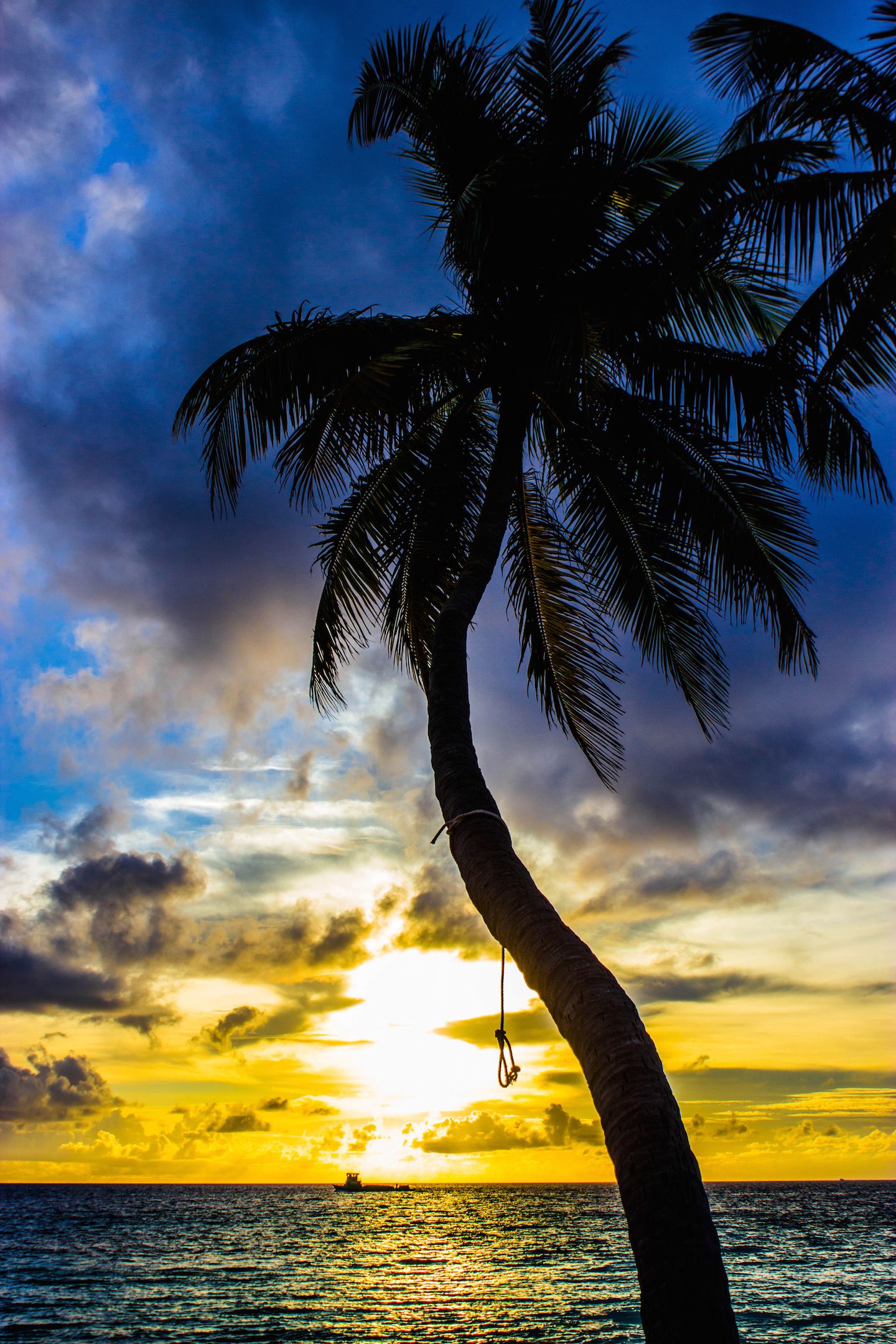
Each day always ended with a spectacular beach sunset. Somehow, it never got old, and everyday, we were mesmerized by the colours in the sky.

Our time in Maafushi was unrivalled – above all other beach experiences I’ve ever had. It was hard to believe that it was possible to live in paradise on a budget. Besides the beach in Maafushi, we also explored other parts of the Maldives on some of the funnest day excursions ever.
For more pictures from Maafushi, please visit the gallery!

